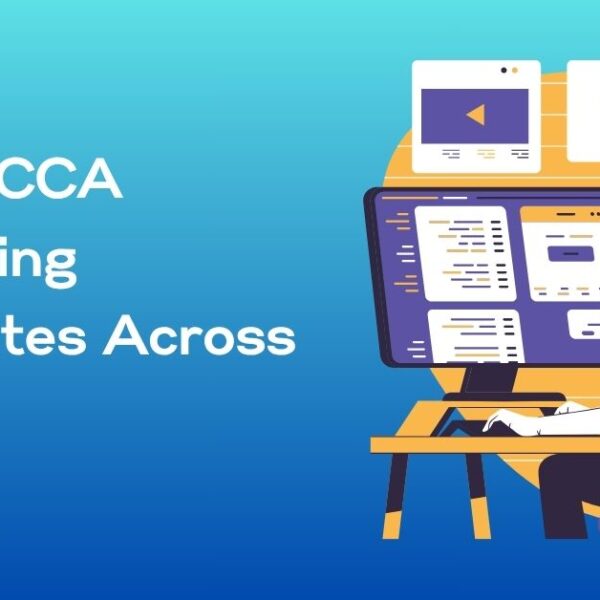Indonesia’s growing integration into the global economy has led to an influx of multinational corporations establishing and expanding their operations across the archipelago. These global companies face unique challenges in building finance teams that can bridge international standards with local business practices.
Increasingly, ACCA qualified professionals are emerging as preferred candidates for these organisations, offering a distinctive blend of global perspective and adaptable expertise. This article explores why multinational companies operating in Indonesia specifically seek out ACCA-qualified finance professionals.
International Standards in a Local Context
Consistency Across Global Operations
For multinational corporations operating across dozens of countries, maintaining consistent financial practices represents a significant challenge. ACCA-qualified professionals offer valuable advantages in this area:
- Standardised Knowledge Base: Understanding of international accounting and reporting frameworks that apply across global operations
- Common Financial Language: Ability to communicate effectively with finance colleagues worldwide
- Procedural Consistency: Familiarity with standardised approaches to financial processes
- Global Methodology Alignment: Understanding of consistent audit and assurance methodologies
This standardisation reduces friction in multinational operations while ensuring Indonesian subsidiaries maintain alignment with global requirements.
IFRS Expertise
As Indonesia continues its journey toward full IFRS adoption through the convergence of SAK (Indonesian Financial Accounting Standards) with international standards, ACCA’s curriculum provides particularly relevant preparation:
- Comprehensive IFRS Coverage: Detailed understanding of international standards
- Convergence Awareness: Appreciation of the adaptation process from local to international standards
- Implementation Experience: Practical approaches to applying IFRS in different contexts
- Ongoing Updates: Current knowledge of evolving standards and interpretations
This expertise enables global companies to maintain compliant financial reporting while navigating Indonesia’s evolving standards.
Cross-Border Transactions
Multinational operations inherently involve complex cross-border financial activities that ACCA qualified professionals are well-equipped to manage:
- Transfer Pricing: Understanding of both technical requirements and underlying principles
- Foreign Exchange Management: Approaches for managing and reporting currency impacts
- International Taxation: Awareness of cross-border tax implications and treaties
- Global Treasury Operations: Knowledge of international cash and liquidity management
These complex areas require professionals who understand both theoretical frameworks and practical applications across jurisdictions.
Strategic Value Beyond Compliance
Business Partnership Capabilities
Global companies increasingly expect finance teams to provide strategic insights beyond traditional reporting. ACCA’s curriculum develops business partnering capabilities through:
- Strategic Professional Modules: Advanced training in business analysis and leadership
- Performance Management Focus: Sophisticated approaches to financial planning and analysis
- Decision Support Emphasis: Frameworks for providing data-driven recommendations
- Value Creation Orientation: Focus on finance as a strategic business partner
These capabilities help transform finance functions from compliance-focused cost centres to value-adding business partners.
Risk Management Perspective
Multinational operations in Indonesia face diverse risks requiring sophisticated management approaches. ACCA qualified professionals bring valuable risk perspectives:
- Enterprise Risk Frameworks: Structured approaches to identifying and assessing risks
- Control Environment Design: Methodologies for Establishing Effective Controls
- Governance Understanding: Appreciation of oversight structures and responsibilities
- Ethical Frameworks: Principles-based approaches to navigating complex situations
This risk awareness becomes particularly valuable in Indonesia’s evolving regulatory environment, where navigating compliance requirements demands both technical knowledge and professional judgment.
Global Mobility Potential
For multinational corporations, finance professionals capable of effective international assignments represent valuable assets. ACCA qualified candidates offer:
- Global Qualification Recognition: Credentials acknowledged across operations worldwide
- Cultural Adaptability: Experience with diverse business contexts and approaches
- English Language Proficiency: Communication capabilities are essential for global roles
- International Mindset: Perspective extending beyond local markets
These attributes make ACCA members ideal candidates for developmental international assignments or leadership of cross-border projects.
Technical Excellence in Specific Functions
Audit and Assurance Quality
Multinational corporations require robust internal audit functions that maintain global standards. ACCA qualified professionals bring particular strengths:
- International Standards Knowledge: Detailed understanding of International Standards on Auditing
- Risk-Based Methodology: Contemporary approaches to audit planning and execution
- Evidence Evaluation: Rigorous approaches to assessing audit evidence
- Reporting Clarity: Effective communication of findings and recommendations
These capabilities support the development of assurance functions that meet both local regulatory requirements and global corporate standards.
Financial Reporting Rigour
Consolidated financial reporting for global entities demands sophisticated technical knowledge. ACCA members offer specific expertise in:
- Group Accounting: Handling complex consolidation challenges across diverse subsidiaries
- Fair Value Measurement: Applying consistent valuation approaches
- Disclosure Requirements: Meeting comprehensive international reporting standards
- Narrative Reporting: Developing meaningful management commentary
This technical depth ensures Indonesian operations contribute accurately to global consolidated reporting while meeting local statutory requirements.
Conclusion
The preference of global companies in Indonesia for ACCA-qualified finance professionals reflects the qualification’s unique alignment with the requirements of multinational companies. By developing professionals with internationally consistent technical knowledge, strategic business perspective, and cross-cultural capabilities, ACCA creates candidates ideally suited to bridge global standards with Indonesian business realities.
For Indonesian finance professionals with aspirations for multinational careers, the ACCA qualification serves as a powerful differentiator. Beyond technical knowledge, it signals to global employers a commitment to international standards, ethical practice, and continuous professional development attributes universally valued across multinational operations.








